Kampung Berkah: Harnessing Zakat for Poverty Alleviation in Indonesia
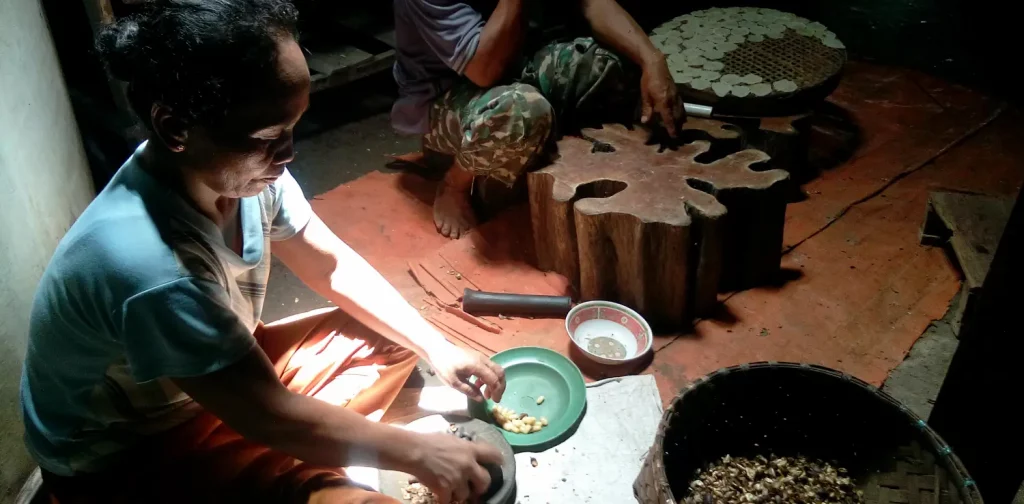
A villager from Girimulyo, Yogyakarta, Indonesia sells emping as livelihood | Photo: Abul Muamar.
The Special Region of Yogyakarta (DIY) is among the most interesting provinces in Indonesia. The province seems to be a whirlpool of fortune, pleasure, poverty, and hardship. The mixed bustles of everyday workers, street stalls, tourists, elite schools, culinary businesses, and royals emphasize the irony and the divide between the poor and the wealthy. To address this issue, the region’s Amil Zakat National Agency (Baznas) launched a program called Kampung Berkah (=Blessing Village) to harness zakat for poverty alleviation in Yogyakarta, Indonesia.
Poverty in Yogyakarta
According to March 2023 data from Statistics Indonesia, almost 450 thousand people in Yogyakarta live in poverty. This data means about 11.04% of the province’s population live with under 573,022 IDR (36.76 USD) per month, the highest percentage among provinces on Java Island.
Furthermore, there is a big divide in Yogyakarta’s economic landscape. Statistics Indonesia noted a Gini ratio of 0.499, higher than the national average. The high number of tourists with higher-than-average incomes and how low the local minimum wage is are the primary causes of poverty and inequality in the region.
Kampung Berkah
Kampung Berkah (=Blessing Village) is a program by Yogyakarta’s Amil Zakat National Agency that optimizes zakat distribution to those in need, especially in the social, economic, education, and healthcare sectors. This program aims to harness zakat for poverty alleviation in Yogyakarta, Indonesia.
Zakat is vital in the Islamic social welfare system. As one of the fundamental pillars of Islam, it is a religious obligation for Muslims who qualify to donate a portion (2.5%) of their yearly income to those in need.
In Kampung Berkah, zakat is used for food and nutrition to prevent stunting, cash and non-cash social welfare for the elderly and people with disabilities, empowerment and economic development for MSMEs, and proper sanitation. Additionally, this program also educates the citizens on disaster mitigation and nature conservation.
Until October 2023, there are eight ‘Kampung Berkah’ villages or subdistricts across four regencies in Yogyakarta. Baznas DIY plans to add all poverty-laden subdistricts in the province into the program. So far, the Kampung Berkah areas include:
- Sleman Regency: Pondokrejo Subdistrict and Wukirharji Subdistrict
- Bantul Regency: Wukirsari Subdistrict and Selopamioro Subdistrict
- Gunungkidul Regency: Bejiharjo Subdistrict and Planjan Subdistrict
- Kulon Progo Regency: Sendangsari Subdistrict and Sidoharjo Subdistrict
“Poverty in Yogyakarta remains a serious problem we need to address. There must be a systematic, integrated, and holistic approach to do it, such as utilizing zakat,” said Puji Astuti, Head of Baznas DIY. “Zakat is an instrument for development that can optimize ummah’s prosperity for the muzakki (the one who qualifies to give zakat) and the mustahiq (the one who qualifies to receive zakat). It is directly linked to economic and social impacts for the people.”
Zakat for Poverty Alleviation
Poverty and inequality are persisting problems that require multiple approaches from all stakeholders. Therefore, efforts to end poverty and reduce inequality must consider all people from all backgrounds, leaving no one behind.
“In this context, [Kampung Berkah] is about the prospect of ummah development through harnessing zakat for poverty alleviation. The prospect is about how to actualize an independent ummah through the zakat mechanism,” said KGPAA Paku Alam X, Vice Governor of Yogyakarta, at the launch of Kampung Berkah in Sendangsari.
“Zakat must be understood not solely as a transcendence duty but also as a manifestation of the horizontal relation between ummah, as the manifestation of faith to create justice and grace for all,” he added.
Translator: Nazalea Kusuma
Read the Indonesian version of this article at Green Network Asia – Indonesia.
Thank you for reading!
Green Network Asia – International Annual Individual Membership supports your personal and professional growth with unlimited online access to our “Exclusive Content” platform purposefully designed to showcase cross-sectoral insights on sustainable development and sustainability in the Asia Pacific and beyond. Enjoy the Membership benefits, including -but not limited to- public policy & regulatory updates, easy summaries of research findings & reports, and impact stories from governments, businesses, and civil society.
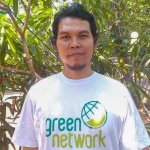
Abul Muamar
Amar is the Manager for Editorial-Indonesia at Green Network Asia. He graduated from Universitas Gadjah Mada with a master's degree in Philosophy and Universitas Sumatera Utara with a bachelor's degree in Communication Science. He has ten years of professional experience in journalism.


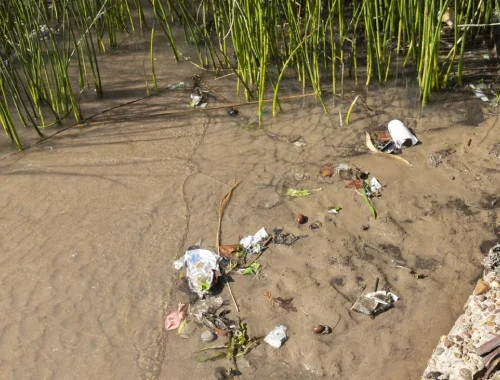 Upholding the Machángara River’s Rights of Nature Against Pollution
Upholding the Machángara River’s Rights of Nature Against Pollution 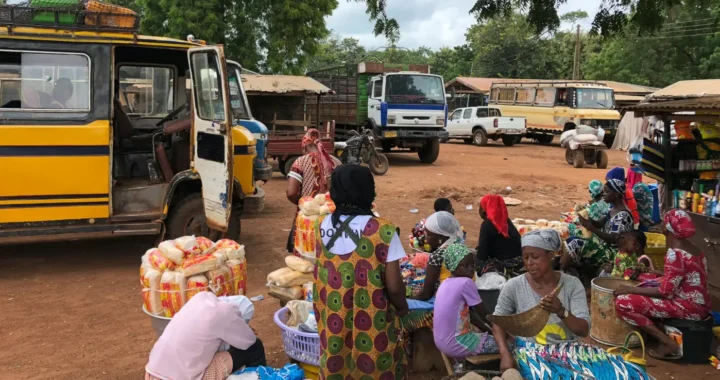 Accelerating Gender-Responsive Disaster Management with Sendai Gender Action Plan
Accelerating Gender-Responsive Disaster Management with Sendai Gender Action Plan  ASEAN and the EU Support Sustainable Connectivity with a Higher Education Program
ASEAN and the EU Support Sustainable Connectivity with a Higher Education Program 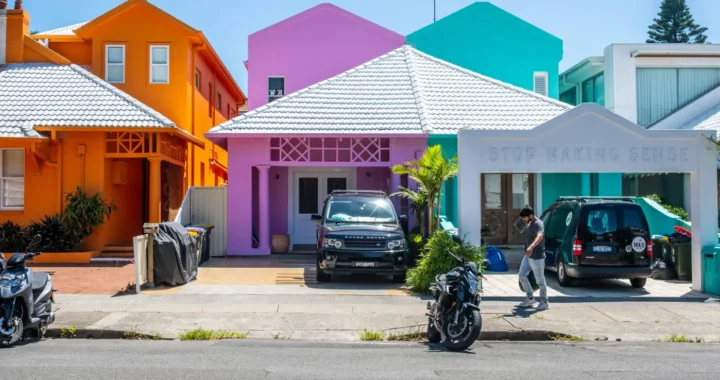 Australia Proposes Right to Housing Bill to Tackle Housing Crisis
Australia Proposes Right to Housing Bill to Tackle Housing Crisis 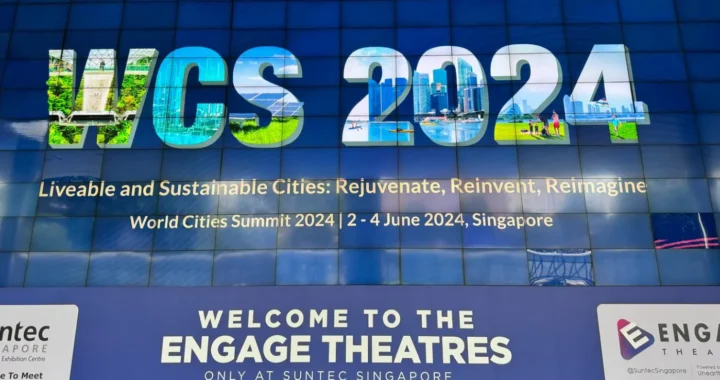 World Cities Summit 2024: A Trigger to Help Build a Sustainable Singapore
World Cities Summit 2024: A Trigger to Help Build a Sustainable Singapore 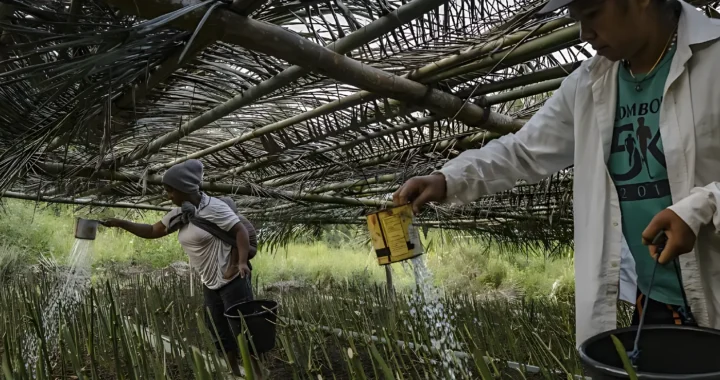 Mama Bambu: How Women in Flores, Indonesia Take Part in Environmental Conservation
Mama Bambu: How Women in Flores, Indonesia Take Part in Environmental Conservation